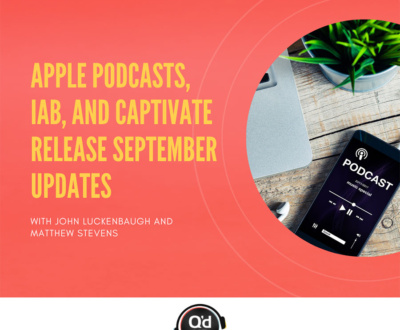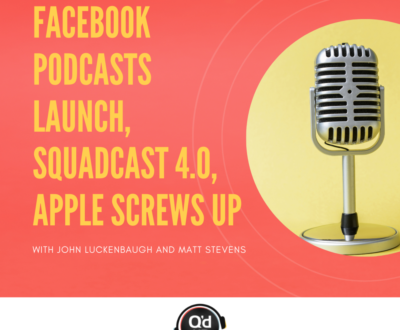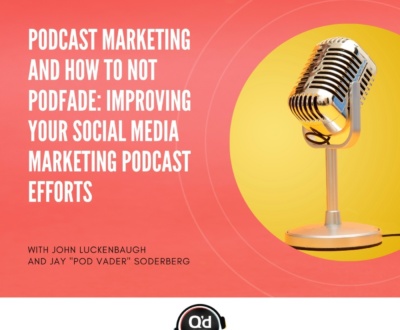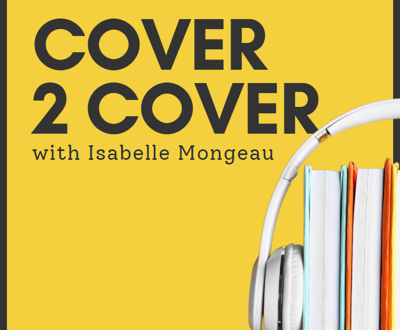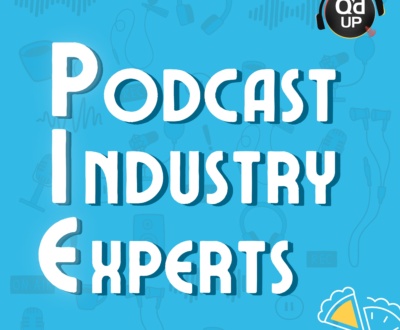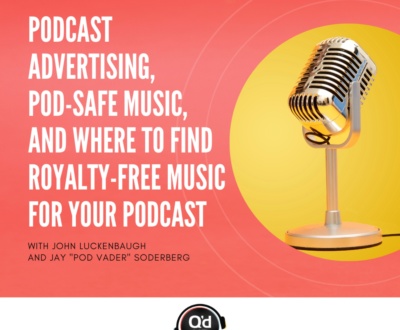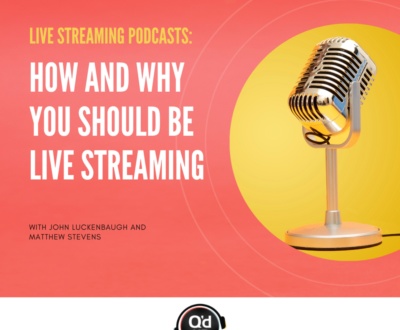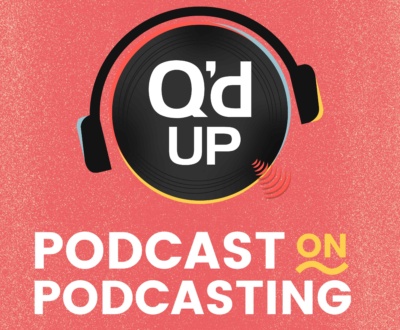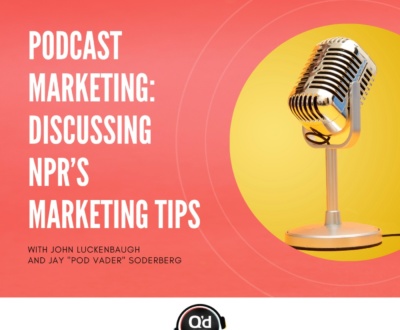Choosing the best audiobook distribution method
- July 13, 2021
- Audiobook marketing, audiobook production, News

With more than $1 billion in total sales in 2019, audiobooks are a huge business. Every author should consider a dedicated audiobook release when planning out the release of more common print and ebook versions. But jumping into the world of spoken word audio can be quite daunting if you’re unfamiliar with it. While we here at Q’d Up can assist you in planning your audiobook distribution, every author should have an understanding of the various audiobook distribution methods available to them, as well as their pros and cons.
Amazon — along with its Kindle and Audible services — are the big players on the block. But they aren’t the only ones. There are several popular and simple ways to distribute your audiobook to the masses, each that come with their own respective positives and negatives. Though this certainly isn’t the definitive list of options available, these are the most readily available and widely-used options for authors to consider.
ACX is the standard in audiobook distribution
When thinking of audiobooks, Amazon subsidiary Audible is usually the first thing that comes to mind for most people. Audible is the largest audiobook producer and retailer in the United States. Audiobook Creation Exchange, better known as ACX, is Audible’s audiobook publishing platform.
Most authors use ACX to distribute and publish their audiobooks, and for good reason! ACX has the largest reach and customer base of any other platform thanks to distributing directly to Audible, Amazon, and iTunes.
However, ACX isn’t the only audiobook distributor in the market. Though they incentivize distributing solely through their platform through their royalty percentages, there are plenty of reasons authors might want to also put their book on other platforms. Before you choose to use ACX, you need to decide if you want to be exclusive or “go wide,” both of which have pros and cons. Let’s break down what this means.
ACX Exclusive
In short, going exclusive with ACX means you can only use ACX to publish and distribute your audiobooks. While you will definitely reach your customers and sell books, there are a few things that tag along with that exclusivity.
Reach:
ACX has access to Audible, Amazon.com, and Apple books. By going exclusive, you will reach a huge customer base.
Audiobook royalties:
A royalty is a percentage of the list price that the author makes when an audiobook is sold. When you are exclusive with ACX, you will earn a 40% royalty on every book sold, which is the highest royalty offered out of any other audiobook publishing and distribution platform.
List Price:
A major downside of going exclusive is ACX sets the list price for your book, which greatly affects your royalty amount.
Availability:
ACX is available to authors who reside in the USA, Canada, UK, and Ireland. So, if you don’t live in these countries, you can’t use ACX.
Contract:
ACX has a few different contract options, including “royalty share” and “pay-for-production,” which will dramatically change the terms. Depending on which method you choose, you can be stuck in an exclusivity deal with Amazon for as little as 90 days and up to forever. The “royalty share” option might sound like a great idea but with a seven-year exclusivity deal tied to it, it often makes far more sense to have the audiobook produced by a company like Q’d Up so you can use the DIY option, giving you far more freedom in changing from exclusive to non-exclusive as needed.
“Going Wide”
Authors that choose a non-exclusive deal with ACX are “going wide.” Choosing this method gives authors more freedom and flexibility with how they distribute their audiobook but also comes with a reduction in ACX royalties, going from 40% to just 25%. However, for authors that want to sell on their own website or have other audiobook distributors in mind, “going wide” can be attractive enough to warrant the smaller royalty share.
If you choose to go non-exclusive, you will most likely work with an aggregator for your audiobook distribution. Audiobook aggregators are companies that partner with multiple distribution platforms and make it easy for authors to manage their distributions. Findaway Voices and Authors Republic are two of the most well-known and respected audiobook aggregators.
Let’s take a closer look at each one below:
Findaway Voices
Findaway Voices offers a lot of flexibility and perks that authors love, making them a preferred option for those choosing to be non-exclusive on ACX.
Audiobook distributors:
Findaway Voices’ distributor list is constantly growing, currently boasting more than 40 distributors. Findaway Voices works with large distributors like Audible, Apple Books, Barnes & Noble, iTunes, Walmart, as well as smaller, more niche audiobook distributors.
Audiobook royalties:
Since Findaway Voices is an aggregator, their royalty system isn’t quite as easy to calculate as ACX.
Each distributor has its own set royalties and, in most cases, Findaway Voices takes a percentage from that. While Findaway Voices gives authors 80% of their royalties, it’s 80% of the royalties the distributor pays out. Here’s the formula:
Retail List Price x Royalty Percentage = Royalties Generated
Royalties Generated x 80% (Findaway Voices royalty payment) = Author’s Payment
If you’re selling your audiobook for $10 and the distributor pays a 50% royalty, you’d still have to pay Findaway Voices their cut (20%), meaning you’d only earn $4 for every $10 audiobook sold. With some distributors paying a significantly smaller royalty percentage, it’s easy to see how going with Findaway Voices could limit your revenue.
List Price:
While the royalty amounts are certainly a knock against Findaway Voices, one of the biggest positives is that the author gets to set their list price. However, even that comes with some potential trouble. Pricing your audiobook too high can limit sales, meaning authors have to research the average market price in their genre and monitor sales in order to find the right price for their book and get the most sales at the highest value.
Sales reporting:
Findaway Voices has a detailed sales reporting system, allowing authors to look at publisher royalty rate, retail price, the actual outlet used for the sale, and other valuable information. This insight can help authors better manage their sales and make more informed advertising decisions.
Audible kickback:
The most common issue reported with Findaway Voices is sometimes audiobooks distributed to Audible get kicked back from the bots that review books before they go to market. When a book is kicked back, Findaway Voices will automatically fix the issue without telling the author. The quality usually isn’t as high, which can impact ratings and cause delays. However, if the author doesn’t mind the lower quality, this could be a good thing since the book gets published quicker.
Tip: At Q’d Up Audio Services, all audiobook recordings are mixed and mastered to ACX guidelines for Audible distribution.
Author’s Republic
Much like Findaway Voices, Author’s Republic is an audiobook aggregator that connects authors to a large number of audiobook distributors.
Audiobook distributors:
Author’s Republic works with most of the same distributors as Findaway Voices. Their list includes well-known companies like Audible, Apple Books, and Barnes & Noble, as well as lesser-known companies like Hoopla and Overdrive.
Audiobook royalties:
Author’s Republic takes a 30% cut of royalties paid by the distributors.
Sales reporting:
Author’s Republic’s sales reporting isn’t as detailed at Findaway Voices but it’s still valuable information for authors. They provide what kind of sale it was and how much money you made from the sale.
Audible kickback:
Those pesky Audible bots will kick back books from Author’s Republic too. When this happens, the book is sent back to the author to fix. This will most likely cause publishing to be delayed but it also gives the author more control over the quality.
Making an audiobook distribution decision
Now that you know the ins and outs of audiobook distribution, you have to make a decision. It all comes down to where your audience is located and how much control you want over your audiobook. Most North American listeners use Audible to access audiobooks. If your audience is mostly located in North America, it could be smarter to use ACX. However, if you want to reach your audience wherever they are located and have more control over your book, going non-exclusive and working with an aggregator could be your best option.
Whichever option you choose, Q’d Up Audio Services is ready to help every step of the way. We are experts in quality audiobook production, recording, and distribution. We’re ready to bring your book to life, contact us today to get started!
Request a free quote
We offer high-quality production, distribution, and marketing for podcasts and audiobooks. Contact us today for a free, no obligation quote

